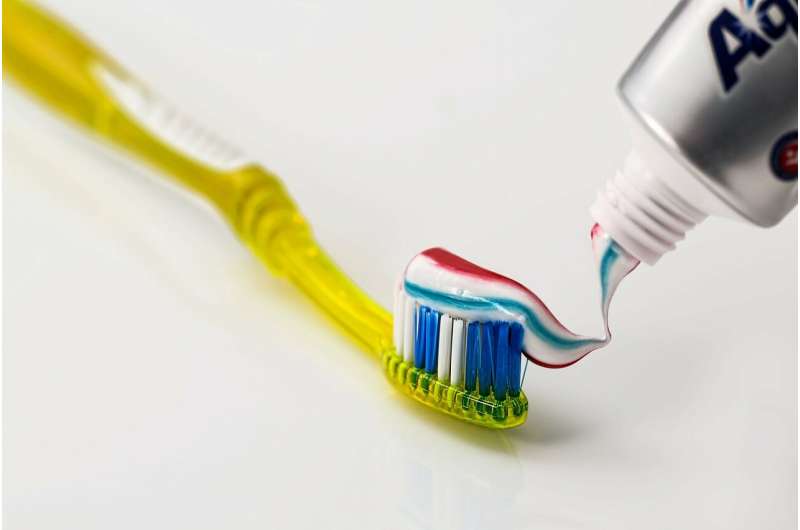This article has been reviewed according to Science X's editorial process and policies. Editors have highlighted the following attributes while ensuring the content's credibility:
fact-checked
trusted source
proofread
Study shows correlation between self-reported oral health and systemic health outcomes

Those who report having poor oral health are as likely to have negative long-term systemic health outcomes as those previously diagnosed with periodontal disease, or gum disease, according to a new Tufts University School of Dental Medicine study published in The Journal of the American Dental Association.
The researchers examined whether self-reported oral health questions, which are commonly used in the surveillance of periodontal disease, had the same or similar comorbidities of the disease by analyzing data sets from the Women's Health Study and the National Health and Nutrition Examination Survey (NHANES).
The Women's Health Study followed women 45 years or older with self-reported information on gum disease, oral health questions, cardiovascular disease, diabetes, and osteoporosis in various timeframes starting from 1992, while the NHANES included data on oral health questions and linked mortality from 1999 to 2018.
Led by first author Yau-Hua Yu, associate professor of periodontology at the School of Dental Medicine, the researchers tested their hypotheses by running analyses that estimated the probability of outcomes based on a variety of factors and then looked at survival rates within various groups.
The results showed that negative self-evaluations were associated with the same level of systemic comorbidities as those who had been diagnosed with periodontal disease. The study also found that suboptimal dental visits or infrequent flossing were associated with an increase in all-cause mortality.
"These questions are really helpful to understand a person's oral health conditions when clinical access is limited," said Yu, noting that in large epidemiological studies like the Women's Health Study, it's not possible to have a dentist on-site to physically examine research participants.
Yu and fellow researchers, including senior author Julie Buring of Brigham and Women's Hospital and Harvard Medical School, also examined the role that access to dental care plays on overall health. They did this by asking two important questions: "In the past 12 months, have you visited the dentist or hygienist?" and "How often do you visit a dental office for routine check-ups and cleaning?"
The researchers found that about 10% of the Women's Health Study participants and 45% of NHANES study participants did not visit a dentist within a year and, as a result, their oral and overall health outcomes were poor.
"Our study findings suggest that people who don't see a dentist may have negative outcomes in terms of mortality," Yu said, noting that their original goal was to understand the usefulness of these questions for understanding and evaluating gum disease and oral health in general.
Given this demonstrated link between oral health and mortality, Yu suggests primary care physicians consider asking about their patients' dental habits and condition to get a fuller picture of their overall health.
Yu isn't stopping with this study. She says she's still working on big data sets, and hopes to showcase outcomes in different populations, such as veterans. She is currently collaborating with the U.S. Department of Veterans Affairs.
And, Yu underscores the need for more large-scale national health studies/biobanking efforts to incorporate questions around dental health to better understand and communicate the association between oral health and long-term health outcomes, as well as the gaps in access to dental care.
"For society in general," she said, "we need to look at, without dental care access, what is the burden?"
More information: Yau-Hua Yu et al, Self-reported oral health is associated with systemic health outcomes and all-cause mortality, The Journal of the American Dental Association (2024). DOI: 10.1016/j.adaj.2023.11.006





















